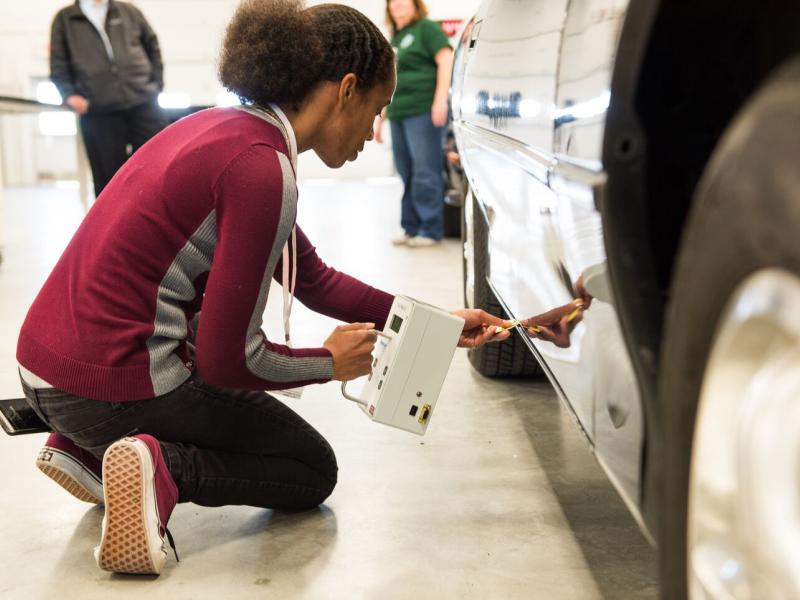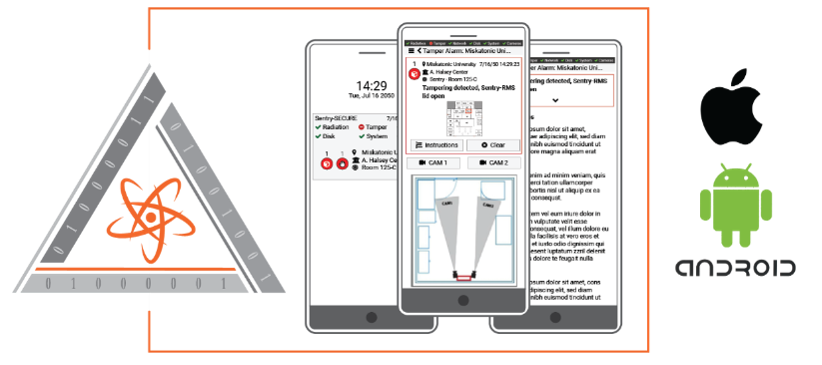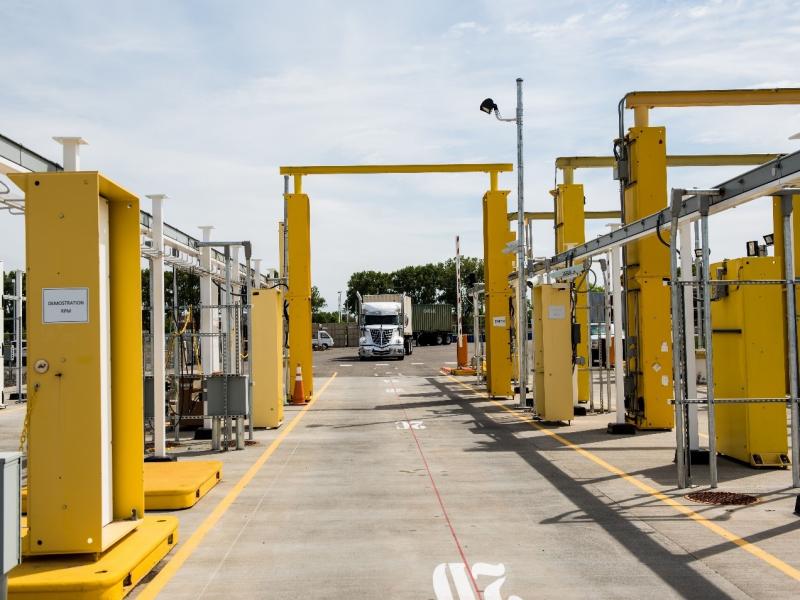Global Nuclear and
Radiological Security
Securing radioactive materials to
prevent theft and terrorism
Pacific Northwest National Laboratory scientists and engineers design and test radiation portal monitors that scan vehicles and cargo for radioactive materials at country borders.
(Image by Andrea Starr | Pacific Northwest National Laboratory)
Pacific Northwest National Laboratory (PNNL) is a primary provider of support to the nonproliferation mission of the National Nuclear Security Administration (NNSA). Building on the history and experience of the Hanford Nuclear Site, our experts develop solutions to enhance the security of nuclear and radiological materials during its use, storage, and transport. This includes providing training to build partners’ capacity around the world to deter and prevent terrorists from acquiring nuclear and radioactive materials that could potentially be used in an attack.
PNNL works with partners in more than 100 countries to develop appropriate physical and cybersecurity systems; train personnel in the testing, evaluation, maintenance, and inspection of those systems; enhance detection of nuclear and radiological material being surreptitiously trafficked; and expand nuclear forensics capabilities.

and nuclear materials. (Photo by Andrea Starr | Pacific Northwest National Laboratory)
Solutions to secure, monitor, and detect radioactive materials
PNNL develops sustainable technical solutions to secure, monitor, detect, and prevent the theft of nuclear and radiological materials around the globe used for medical, research, and commercial purposes.
PNNL scientists and engineers build security tools to help partners better protect radioactive materials from insider threats, enhance information sharing with law enforcement and other first responders, and track mobile radioactive sources in the field. An example of this work is the PNNL-developed Sentry Remote Monitoring System (Sentry-RMS) and its cloud-based application, Sentry-SECURE—a system that hospitals, research institutions, and commercial organizations can use to mitigate the insider threat. This system provides redundant alarming and monitoring capabilities for radiological materials and elevates situational awareness among law enforcement stakeholders.

We also support the NNSA’s Office of Radiological Security’s efforts to track down radioactive sources that have fallen out of regulatory control or may have been lost or stolen. Through the Search and Secure project, our experts collaborate with partner countries to provide equipment, training, and tools necessary to search, locate, and secure orphaned, lost, or stolen radioactive sources.
Reducing the need for radioactive materials will ultimately reduce their threat and has become a primary emphasis for NNSA’s Office of Radiological Security. PNNL supports the NNSA mission by coordinating with industry, academia, and partner countries to study, deploy, and educate on the use of non-radioactive alternative technologies that can replace and reduce the footprint of at-risk radiological material.
Improving detector performance
PNNL designs and deploys detection capabilities to prevent the smuggling of illicit nuclear and radiological materials across country borders. Our scientists and engineers are designing and testing the next generation of radiation portal monitors that scan vehicles and cargo for radioactive materials. Much of this work takes place at the Interdiction and Integration Laboratory, where experts can test radiation portal monitoring equipment and technologies by simulating realistic field conditions for screening vehicles, cargo, pedestrians, and baggage.

Cybersecurity in the nuclear sphere
Security experts at PNNL help bridge the gap between the cyber and physical security of nuclear and radiological materials, analyzing existing vulnerabilities and devising the measures necessary to mitigate them.
Our cybersecurity researchers conduct rigorous vulnerability tests on equipment and digital systems to detect, evaluate, and predict potential threats, and to develop more resilient technologies and systems that are better protected from cyberattacks.
International leadership in nuclear nonproliferation
PNNL’s legal and policy experts lead efforts with the International Atomic Energy Agency and other international partners to enhance the legal and regulatory framework for nuclear and radiological security around the world, help build a robust nuclear security culture, tackle the vulnerabilities posed by the insider threat, and support international consensus building in the area of nuclear nonproliferation.